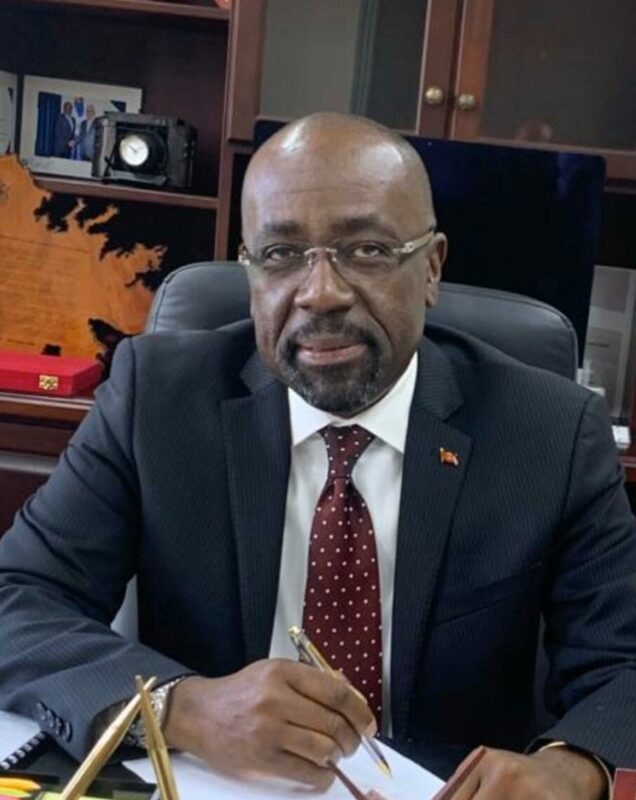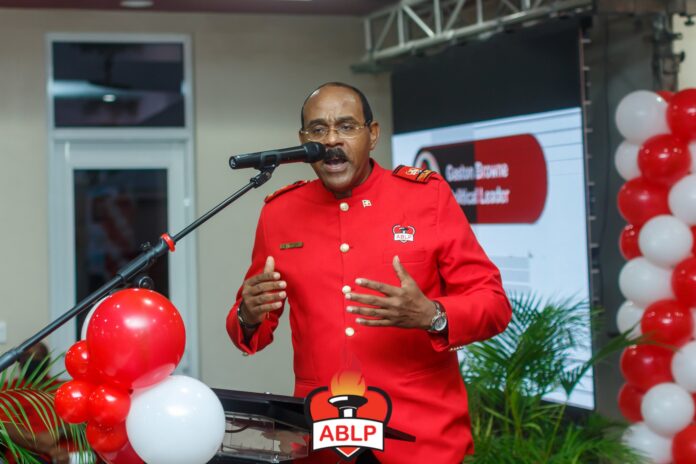
Political parties are often considered the lifeblood of democratic systems, providing the frameworks for governance and shaping national progress. However, when a party falters, the repercussions ripple across society. The United Progressive Party (UPP), once a formidable force in Antigua and Barbuda, now stands as an example of how political organizations can fall from grace. Here’s a critical examination of the factors that have led to the UPP’s decline.
A political party thrives when it has a clear and consistent philosophy that resonates with its base and offers a vision for the nation that proves attractive. The UPP has struggled to define and stick to a unifying ideological framework. The unproven boasts that the party champions progressive policies stand exposed as the UPP increasingly appears rudderless, leaving voters confused about its core principles. Without a philosophy, the UPP has been unable to inspire confidence or present itself as a credible alternative.
Strong leadership is crucial for any political entity, especially in challenging times. The UPP’s leadership (even when in government)has often been criticized for lacking vision, decisiveness and the ability to unify its members. Infighting, poor decision making and a failure to groom new leaders have compounded the problem, leaving the party adrift. Leadership is not just about managing crises but also about inspiring hope and charting a path forward, qualities that the UPP has failed to demonstrate.
Voters judge political parties not just by their promises but by their ability to deliver. The UPP’s tenure in power (2004-2014) was marked by significant gaps between what was promised and what was actually delivered. Whether in education, healthcare, infrastructure or social welfare, the party’s inability to meet expectations has eroded public trust. These performance failures are not just a matter of perception but reflect a deeper organizational dysfunction within the party.
Economic management is a cornerstone of effective governance and the UPP’s track record in this area has been a major failure. Under its watch, the Antigua and Barbuda experienced periods of economic stagnation and decline, exacerbating unemployment and reducing public confidence in the party’s competence. In a globalized economy, effective policies are critical for growth and stability, both areas where the UPP has consistently fallen short.
Compounding the economic challenges are the UPP’s fiscal policies, which have often been criticized for being short sighted and poorly implemented. Reckless spending, insufficient revenue generation and a failure to prioritize key sectors have left the economy vulnerable under their watch. Moreover, these policies have disproportionately impacted marginalized communities, further widening social inequalities and fueling widespread discontent.
The UPP’s engagement with the International Monetary Fund (IMF) has been another sore point. While IMF agreements are often touted as solutions for fiscal crises, the austerity measures imposed under UPP’s watch have stifled private investment and economic growth. High taxes, reduced public spending and limited policy flexibility have created an environment hostile to both local entrepreneurs and foreign investors. This UPP’s reliance on external solutions, without addressing structural issues, only served to deepen the country’s economic woes.
A party’s effectiveness is not only judged by its policies and leadership but also by the commitment and contributions of its members, particularly in parliamentary debates and the strengthening of institutions. The UPP’s members have often been criticized for lackluster participation in legislative processes, with debates frequently falling short of addressing critical national issues comprehensively.
Strong democracies are built on vibrant parliamentary engagement, where members advocate for policies that reflect the needs of their constituents while holding the government accountable. However, the UPP has frequently failed to articulate clear, compelling alternatives during debates or to demonstrate a commitment to institutional development. This absence of robust dialogue and constructive criticism weakens democracy and undermines public confidence in the party.
Furthermore, the failure to champion the creation and reinforcement of strong democratic institutions has left lasting vulnerabilities in governance. Instead of positioning itself as a defender of institutional integrity and the rule of law, the UPP has too often allowed personal rivalries and partisan interests to dominate its agenda, further alienating voters.
This dynamic not only limits the UPP’s ability to effect meaningful change but also reflects a broader issue within political parties: the need to ensure that members are prepared, informed and committed to advancing both democracy and the national interest. Until political parties, including the UPP, prioritize the quality of their parliamentary engagement and institutional contributions, they will continue to fail the people they claim to serve.
Perhaps the most visible sign of a party in decline is the loss of its members. The UPP has faced an exodus of key figures, from grassroots organizers to high-profile leaders, many of whom cite frustration with the party’s direction, or lack thereof. This internal fatigue reflects broader public disillusionment. A party that cannot maintain the confidence of its own members can’t be expected to inspire trust among voters.
The decline of the UPP offers a stark lesson in the importance of strong foundations, adaptable leadership and a commitment to deliver on promises. Political parties must evolve to meet the needs of their constituents while staying true to their core principles. The UPP’s struggles underscore the risks of neglecting these imperatives.
As the political landscape in Antigua and Barbuda continues to evolve, the UPP faces a crucial crossroads: will it reform and rebuild, or will it fade into irrelevance? All political indicators point to the latter.






This whole article is so laughable I can cry!!!! Do you antiguans lack spine??? Honest question. You mean to tell me nobody wanted to know where they tax money went last year?? Why the country in half a billion dollar debt and upp lack there of is the topic??? Yall seem desperate for change how yall want upp to be spit and shiny while 7 minister that have YOUR money in their back pocket didn’t say ONE thing about where your OLD MONEY WENT AND WHERE YOUR NEW MONEY GOING. Yet one thing they made clear is they are borrowing 450 million on YOU THE CITIZENS BACK and for your children to pay back. Yall have this sad spineless chet now telling someone how to speak and be??? Antigua is sp laughable it’s embarrassing
Chet I thought you were an intelligent person…cudda fool me
Chet i find you got some real time on your hand. All of a sudden you writing? Write on my boy